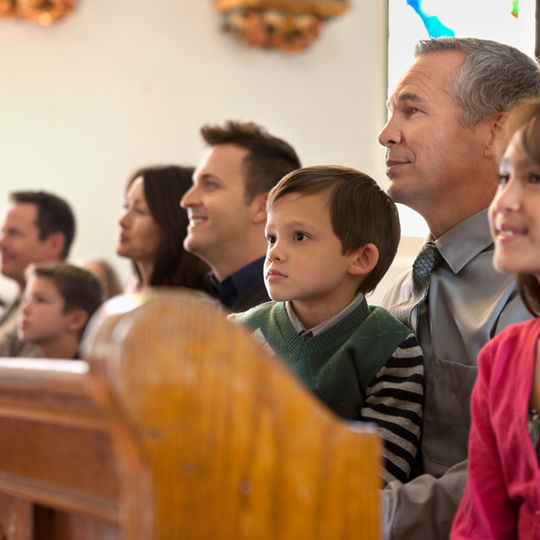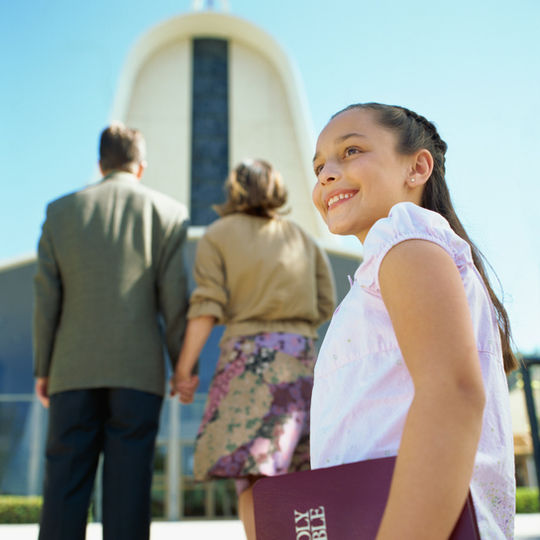
Who are we? What do we believe?

How ECo began?
In the summer of 2010, seven pastors from the Presbyterian Church (USA) spoke of finding new ways to encourage each other in faith, ministry, and mission. They were concerned by the declining membership within their denomination (from four million to two million in 40 years). And they worried that growing denominational disputes over theology and bureaucracy stole focus from their pastoral calling of sharing the gospel of Jesus Christ and equipping a new generation to lead. These pastors dreamed of reclaiming a sense of covenanted community among leaders from a Presbyterian and Reformed heritage, and to find new ways for churches to connect, grow, and multiply.
In January 2011, these pastors sent out a letter to PC(USA) pastors around the country, asking if others wanted to join in crafting a new way forward. The response was overwhelming: just seven months later, in August 2011, nearly 2,000 men and women gathered in Minneapolis to dream and pray.
became the birth of The Fellowship of Presbyterians, a ministry association
that seeks to equip and connect those in various Presbyterian denominations
including the PC(USA). But some pastors and congregations felt God calling
them to leave the PC(USA), and many young seminarians were looking for a
different context for ordination. As a result, in January 2012, at a conference in
Orlando with more than 2,200 in attendance, a new denomination was formed:
ECO: A Covenant Order of Evangelical Presbyterians.
ECO is committed to cultivating a healthy, diverse, resource-rich ecosystem where pastors and congregations can flourish
as found on the ECO website, eco-pres.org
Our Name
The name ECO is not an acronym. It reinforces our passion for strengthening the ecosystems of local churches. We believe that the Church is a living organism that needs life-giving resources to help it grow, thrive, and multiply. ECO is committed to cultivating a healthy, diverse, resource-rich ecosystem where pastors and congregations can flourish.
Our full name (ECO: A Covenant Order of Evangelical Presbyterians) speaks to our core commitments:
COVENANT
To connect leaders in accountable relationships & encourage collaboration.
COVENANT
Evangelical
Evangelical
To advance the gospel of Jesus Christ & plant new missional communities.
Presbyterian
Presbyterian
To stand within our reformed heritage and celebrate the life of the mind
Order
Order
To commit to a shared way of life as we untie around a shared theological core.

Mission & COre Values
We seek to be a movement, not just a denomination.
These are the foundations that propel us forward.
our Mission
To build flourishing churches that make disciples of Jesus Christ.
Our Core Values
Jesus-shaped Identity:
We believe Jesus Christ must be at the center of our lives and making disciples of Jesus at the core of our ministry.
Biblical Integrity:
We believe the Bible is the unique and authoritative Word of God, which teaches all that is necessary for faith and life. The prominence of God’s Word over our lives shapes our priorities, and the unrivaled authority of the Bible directs our actions to be in concert with Christ’s very best for our lives.
Missional Centrality:
We believe in living out the whole of the Great Commission – including evangelism, spiritual formation, compassion, and redemptive justice – in our communities and around the world.
Thoughtful Theology:
We believe in theological education, constant learning, and the life of the mind, and celebrate this as one of the treasures of our Reformed heritage.
Accountable Community:
We believe guidance is a corporate spiritual experience. We want to connect leaders to one another in healthy relationships of accountability, synergy, and care.
Kingdom Vitality:
We believe congregations should vigorously reproduce new missional communities to expand the Kingdom of God.
Egalitarian Ministry:
We believe in unleashing the ministry gifts of women, men, and every ethnic group.
Center-focused Spirituality:
We believe in calling people to the core of what it means to be followers of Jesus – what “mere Christianity” is and does – and not fixate on the boundaries.
Our History
Exploring our roots

A Brief History of Our Church
The history of our church is closely entwined and interwoven with the history of our community for both came into existence in 1888.
Plymouth Junction
Monett was originally called Plymouth Junction, which existed prior to 1888 as an unincorporated village in northern Barry County, Missouri. On September 27, 1888, the Frisco Railroad terminal was officially moved from Pierce City to Plymouth Junction. Articles of Association, which had been filed with the Missouri Secretary of State, were granted to the Monett Town Company authorizing the platting of a new town to be known as Monett, Missouri. Plymouth Junction became a part of Monett and a new roundhouse and other railroad facilities were soon constructed in the new town. For the next two generations, the railroad was to be the economic lifeblood of Monett.
Ozark Presbytery
Only a few months after the incorporation of Monett, under the auspices of what was then known as Ozark Presbytery, a new Presbyterian church was organized on November 10, 1888. The name chosen for the new church was The First Presbyterian Church of Monett. On the following day, November 11, 1888, four members of the new church met to discuss plans for a church building. Five years later, on December 31, 1893, a new church building with a seating capacity of 300 was dedicated at the corner of 5th and Cale Streets.
Carnegie Foundation
In 1913, the existing church building was remodeled to permit the installation of a new pipe organ secured from the Carnegie Foundation. In 1941, a social room, kitchen, additional classrooms, and a kitchen were added to the west side of the church.
700 Sycamore
By the mid-1960’s, the existing church building was no longer adequate and a new education building was erected at 700 Sycamore. The new building contained a social room (which served as a temporary sanctuary), restrooms, six Sunday School classrooms, a kitchen, a nursery, and separate offices for a pastor and a secretary. The doors of the old church were officially closed on October 10, 1966, and the congregation worshiped in the education building until the present sanctuary was dedicated on December 14, 1975. Additional office space and a multi-purpose room were completed ten years later and dedicated on December 22, 1985.
Robust Economy
As our church changed, so did the Monett community. After World War II, it became apparent that Monett could no longer rely solely upon the railroad for its financial well-being. In May of 1958, the Monett Industrial Development Corporation was organized to promote industrial and economic development in Monett. Thanks to the efforts of this organization and the support provided by a broad cross-section of Monett residents, including city government and the Monett Chamber of Commerce, Monett today enjoys a robust economy supported by a diverse industrial base. During this period of growth and change, members of The First Presbyterian Church consistently provided leadership in all facets of community life.
ECO
In 2016, after many months of discernment and discussion among members of our Session and church family, our church sought dismissal from the Presbyterian Church (U.S.A.). This dismissal was approved on February 27, 2016, pending reception by ECO: A Covenant Order of Evangelical Presbyterians. On May 16, 2016, we were informed that our church had been accepted for membership in ECO.








